Will William Lai's win spark war in the Taiwan Strait?
With the Democratic Progressive Party's William Lai winning the Taiwan presidential election, there are concerns that Lai's future moves might provoke mainland China into extreme actions. Lianhe Zaobao correspondent Yu Zeyuan weighs up the possibilities.
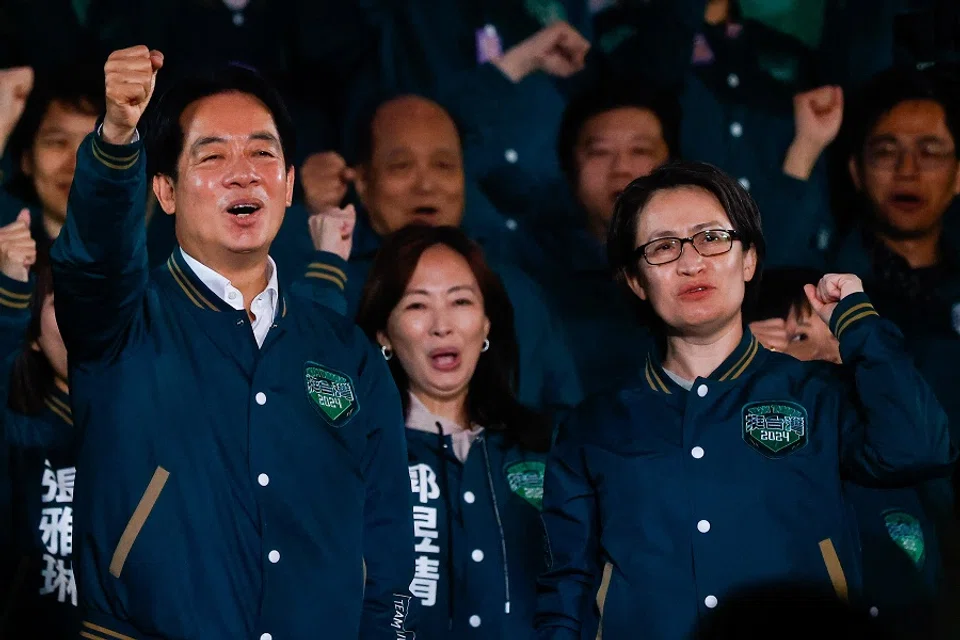
The results of Taiwan's elections are out, and Democratic Progressive Party (DPP) candidates William Lai Ching-te and Hsiao Bi-khim have been elected as Taiwan's next president and vice-president.
Many in mainland China feel that with the "golden child of Taiwan independence" Lai taking office, cross-strait relations will continue to worsen, and could even spark off war in the Taiwan Strait.
The fact is, since last November when the "Blue-White coalition" between Kuomintang (KMT) and the Taiwan People's Party (TPP) fell apart, there has not been much suspense in the lead-up to the elections.
While many Taiwanese did not want the DPP to continue in power, neither the KMT nor the TPP could unite the anti-DPP voters, and the DPP was able to win just by relying on their traditional base of supporters; the election results confirmed this assessment.
... his [William Lai's] statement revealed three key points: that he will adhere to the constitutional order of the ROC, that he will maintain the status quo, and that he will maintain peace and stability in the Taiwan Strait.
What next?
The questions to ask next would be: will Lai continue to pragmatically push for "Taiwan independence" after he takes office? How will mainland China deal with this president-elect, who is an even more radical worker for Taiwan independence than the incumbent President Tsai Ing-wen? Will war break out in the Taiwan Strait?
The answer to the first question is perhaps not too complicated. Lai will definitely continue to push for Taiwan independence after assuming office, but the keyword is that he must be pragmatic in his approach.
This means that Lai must first consider the tolerance level of both the US and mainland China. During the campaign period, Lai could use more radical language on Taiwan independence to rally the DPP's traditional base of supporters to cast their votes. However, the responsibility and pressure on his shoulders after taking office would be vastly different - he would not like to figuratively put himself on the spit and be roasted over the fire.
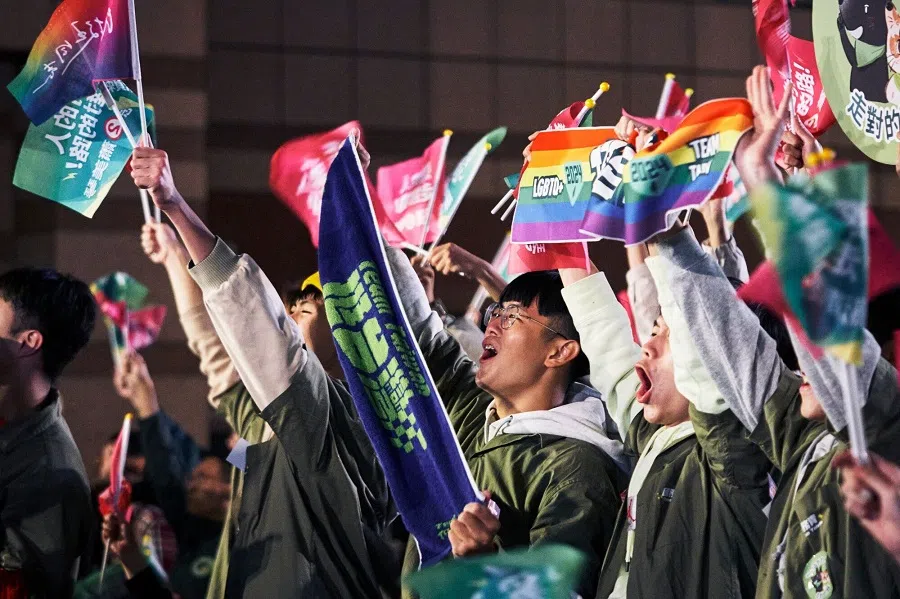
At the press conference after his win, Lai said he would "act in accordance with the constitutional order of the Republic of China (ROC)" and in a balanced manner, maintain the cross-strait status quo. While he said that he was "determined to safeguard Taiwan from continuing threats and intimidation from China", he also stressed that maintaining peace and stability in the Taiwan Strait would be an important mission for him.
... Lai is unlikely to push for de jure "Taiwan independence" through constitutional amendments, and would maintain the status quo, meaning acceptance of the "one China" content inherent in the ROC Constitution.
Lai's intentions
While Beijing would not find Lai's words satisfactory, his statement revealed three key points: that he will adhere to the constitutional order of the ROC, that he will maintain the status quo, and that he will maintain peace and stability in the Taiwan Strait.
These three points are basically the same as Tsai Ing-wen's position during her eight years in power. In other words, though Lai will continue to be a "pragmatic worker for Taiwan independence" and put effort into "de-sinicisation", he is unlikely to - or, he will not dare to - take actions that go against the constitutional order of the ROC. Lai is unlikely to push for de jure "Taiwan independence" through constitutional amendments, and would maintain the status quo, meaning acceptance of the "one China" content inherent in the ROC Constitution.
Lai claimed that it was not his intention to maintain the status quo, but that he had no choice. From the outside looking in, although the US supports Taiwan in resisting mainland China, it will still maintain the "one-China" policy of the past decades and will not openly support Taiwan independence, so as to avoid being dragged into a military conflict with mainland China over "Taiwan independence".
Mainland China is even more highly vigilant. It will not tolerate Taiwan's push for de jure independence, and will not hesitate to use military force to settle the Taiwan issue if this happens. It will be difficult for Lai to recklessly race down the road of "Taiwan independence" if he wants to maintain the status quo.
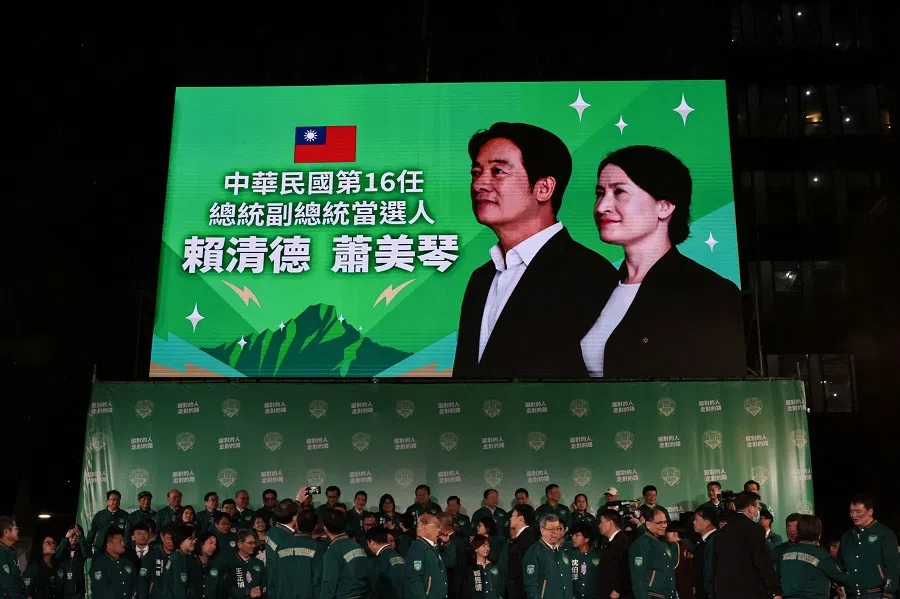
From inside Taiwan, while Lai's victory was expected, compared to Tsai's victory over the KMT's Han Kuo-yu four years ago, it can only be regarded as a small victory. Moreover, the DPP lost its majority in the Legislative Yuan, giving rise to the new situation where the opposition outnumbers the government in the Legislative Yuan, meaning that compared to Tsai, Lai will have a much more difficult time pushing for policies.
Whether mainland China will suspend the ECFA after Lai takes office will depend on Lai's performance.
Mainland's attitude set to change?
As for how mainland China will deal with Lai, it is perhaps useful to refer to how they dealt with the Tsai administration.
Over the past eight years, while mainland China insisted that Taiwan uphold the 1992 Consensus and the "one China" principle, Tsai refused. As a result, exchanges between officials on both sides of the Taiwan Strait were suspended, and the cross-strait "white gloves" of the Association for Relations Across the Taiwan Straits and Straits Exchange Foundation are also basically inactive.
As it is even more unlikely for Lai to acknowledge the 1992 Consensus and the "one China" principle, suspended exchanges between officials on both sides of the Taiwan Strait will not resume after Lai takes office.
But cross-strait relations over the past eight years have also demonstrated that mainland China did not come down hard on Taiwan just because the island did not acknowledge the "one China" principle or because Tsai had, whether overtly or covertly, tried to "de-sinicise" Taiwan.
Until today, although mainland China is dissatisfied with the Tsai administration, it has yet to suspend the Economic Cooperation Framework Agreement (ECFA) that was signed during the Ma Ying-jeou era. It only announced the suspension of ECFA tariff rates for 12 products from Taiwan, including propylene and paraxylene. Whether mainland China will suspend the ECFA after Lai takes office will depend on Lai's performance.
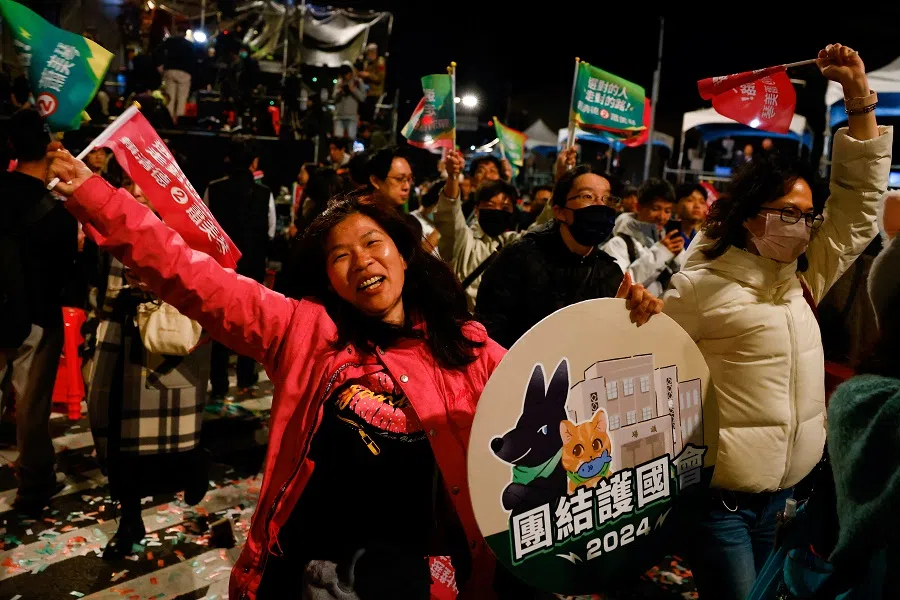
Public opinion in mainland China reacted strongly against Lai's election victory, with many questioning the official policy toward Taiwan and calling for the lifting of economic measures benefiting Taiwan and putting greater pressure on the island. Some also alleged that there is no longer hope for peaceful reunification in the Taiwan Strait, and urged the mainland to use non-peaceful means to resolve the Taiwan issue once and for all during the Lai administration.
... unless Taiwan and the US fully cross mainland China's red lines, it will not easily choose to use force against Taiwan and disrupt its modernisation process...
Beijing's tolerance
But Taiwan is not pushing for de jure Taiwan independence, and exchanges between the US and Taiwan have not completely crossed mainland China's red line of establishing official diplomatic and military relations with Taiwan. Since the US still verbally adheres to the one-China policy and does not support Taiwan independence, it is unlikely that mainland China will push for reunification by non-peaceful means in the short term.
This is because mainland China's primary goal in the coming period is to achieve socialist modernisation by 2035, as set by Chinese Communist Party General Secretary Xi Jinping. Hence, unless Taiwan and the US fully cross mainland China's red lines, it will not easily choose to use force against Taiwan and disrupt its modernisation process just because of Lai's de-sinicisation efforts or some US officials' visit to Taiwan.
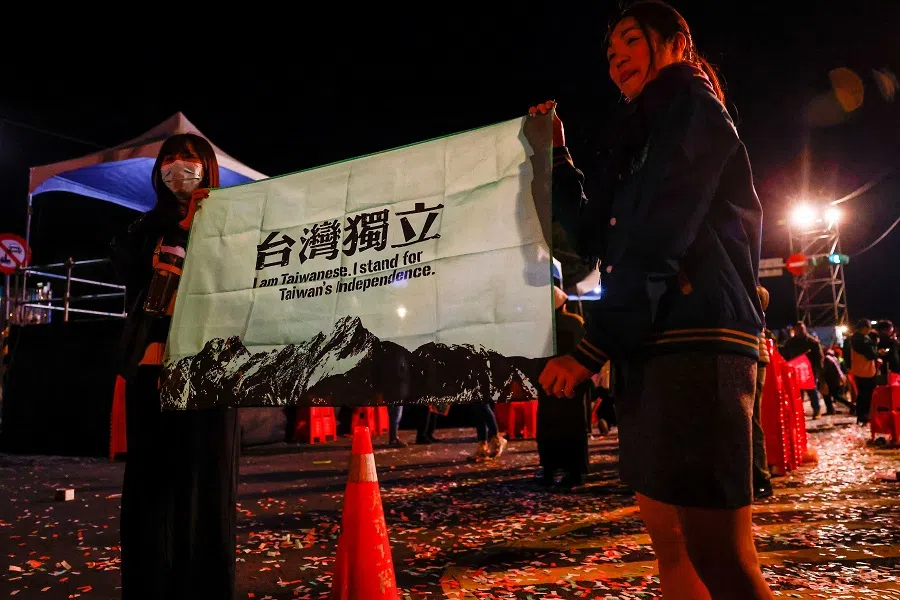
Besides, although cross-strait relations have been stuck in a stalemate over the past eight years, with mainland China's growing comprehensive national power and military strength, the power balance in the Taiwan Strait is still tilting in mainland China's favour. Mainland China believes that it has gained the upper hand in the Taiwan issue, and that it is in command of the timing and conditions for resolving the issue.
Clearly, although Lai's election victory spells new trouble for cross-strait relations and allows the US to continue playing the "Taiwan card" to contain mainland China, it is still unlikely that war will break out in the Taiwan Strait. Mainland China, the US and Taiwan all have to deal with their own internal problems, which are the priority.
This article was first published in Lianhe Zaobao as "赖清德上台将引发台海战争?".



![[Big read] When the Arctic opens, what happens to Singapore?](https://cassette.sphdigital.com.sg/image/thinkchina/da65edebca34645c711c55e83e9877109b3c53847ebb1305573974651df1d13a)
![[Video] George Yeo: America’s deep pain — and why China won’t colonise](https://cassette.sphdigital.com.sg/image/thinkchina/15083e45d96c12390bdea6af2daf19fd9fcd875aa44a0f92796f34e3dad561cc)
